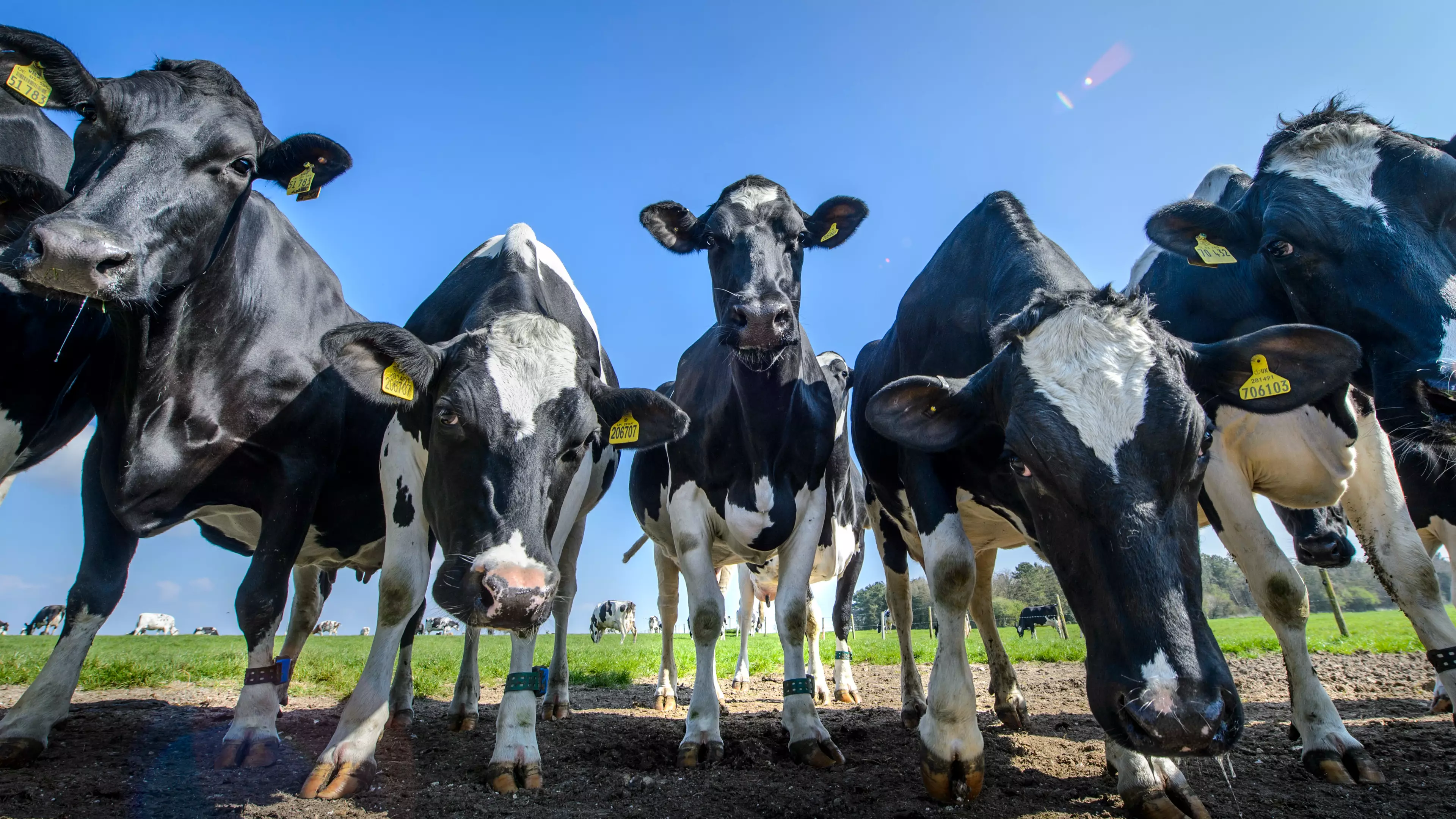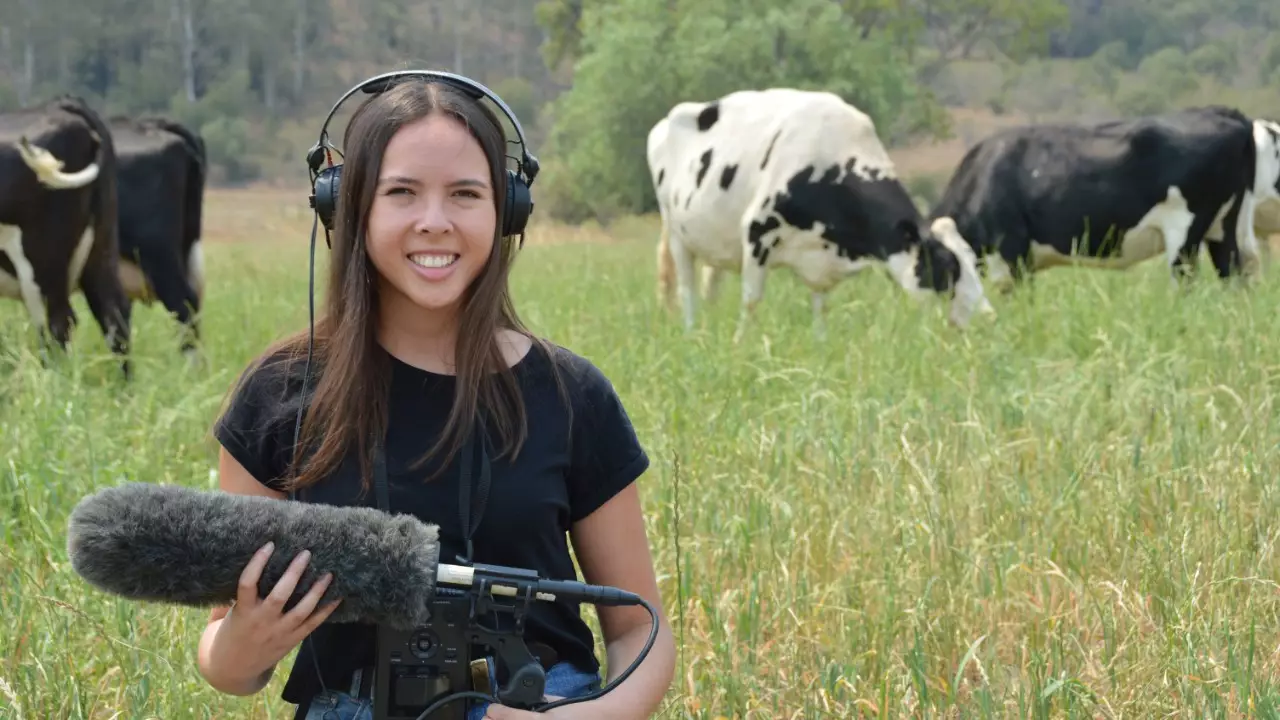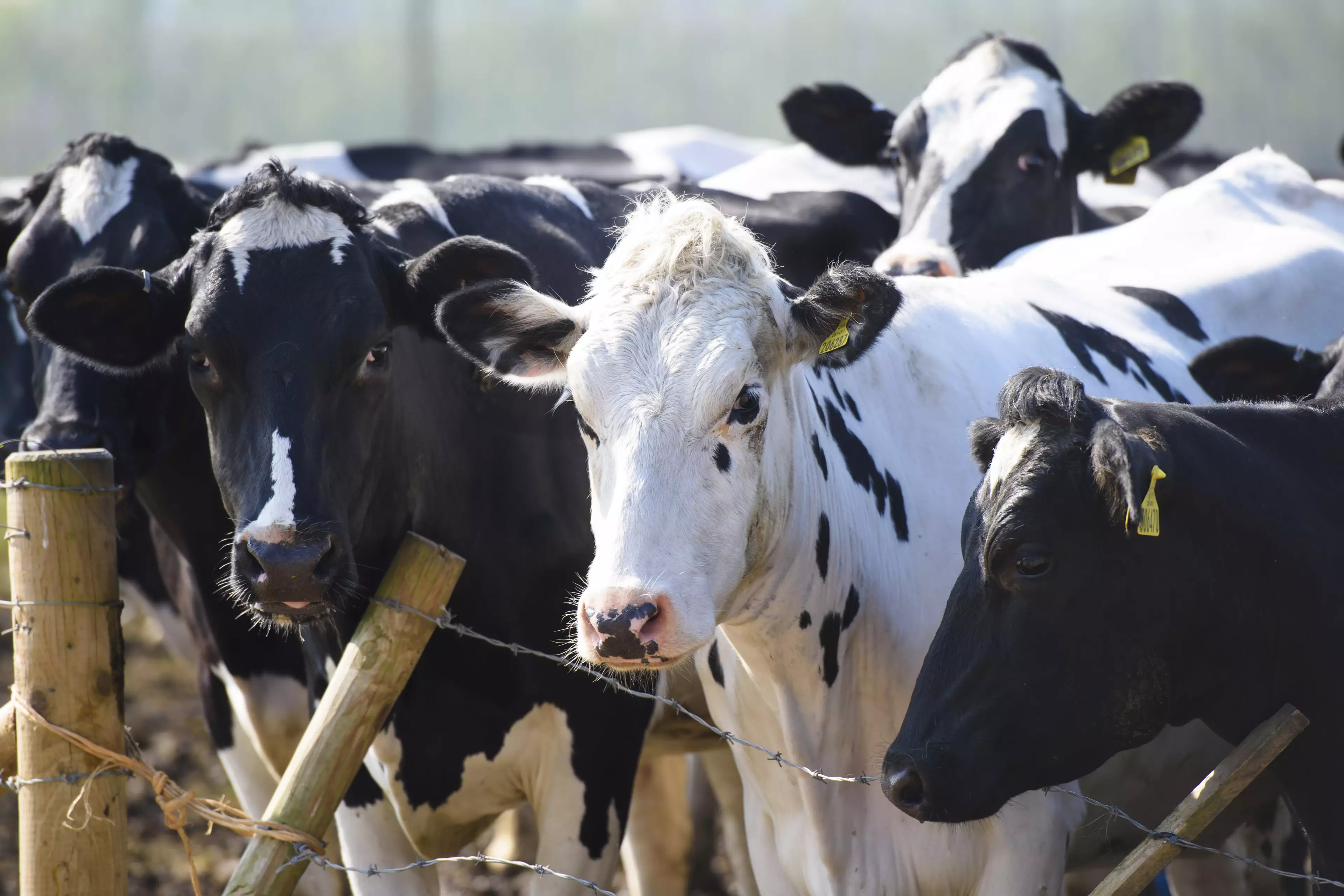
Cows can 'talk' to each other using their moos, a new study has claimed.
Researchers in Australia studied Holstein-Friesian cows and found that the animals can communicate with each other, and respond to positive and negative emotions.
Scientists from the University of Sydney used a special programme - dubbed the 'Google Translate for cows' - to analysis the pitch of their moos.

Alexandra Green, the study's lead author, said: "They have all got very distinct voices. Even without looking at them in the herd, I can tell which one is making a noise just based on her voice."
Advert
The study, published in Scientific Reports, found that cows can express a range of emotions, including distress, excitement and arousal.
Three hundred and thirty-three cow 'vocalisations' were recorded during the study and this data was analysed and examined to get to the bottom of how cows use their 'voices' throughout the lives and how they communicate (or co-moo-nicate, if you will) with each other.
Green added: "Cows are gregarious, social animals. In one sense it isn't surprising they assert their individual identity throughout their life.
"This is the first time we have been able to analyse voice to have conclusive evidence of this trait."
Advert
A previous study on cows communicating found that cow mums and offspring were able to communicate with each other through their 'lowing'. Green's study found that cows keep this individual mooing throughout their lives.
Green said the cows 'spoke' to each other throughout a variety of situations, including waiting or being denied food and would also communicate when separated from the herd.
Study co-author Cameron Clark, praised colleague Green, saying: "Ali's research is truly inspired. It is like she is building a Google Translate for cows."

Green is hopeful the findings will be used by farmers to better understand cows and improve their well-being.
Advert
The study's abstract reads: "This study shows that cattle vocal individuality of high-frequency calls is stable across different emotionally loaded farming contexts.
"Individual distinctiveness is likely to attract social support from conspecifics, and knowledge of these individuality cues could assist farmers in detecting individual cattle for welfare or production purposes."
Featured Image Credit: PA
Topics: Science, Interesting, Animals, Australia